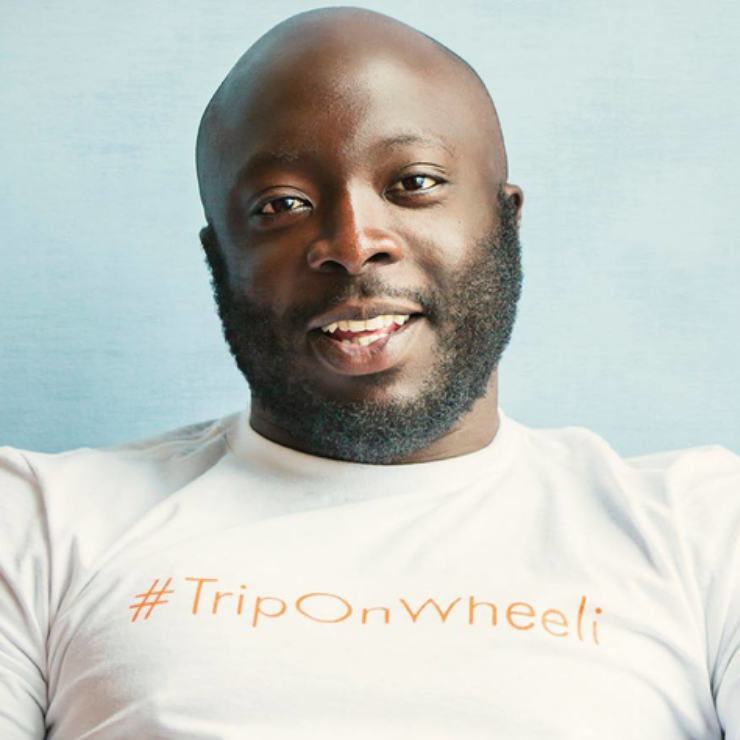Why Do White Men Raise More VC Dollars Than Anyone Else?
Nov 18, 2020

By Jean-Pierre Adéchi, serial entrepreneur and veteran founder
Fundraising is Hard. Period.
Let me be clear: raising capital is hard for everyone.
In America, fundraising for your startup is not a merit based exercise. It’s not a standardized academic exam where you achieve your goal if you check off all the right boxes. It’s not because you begin the exercise of fundraising that you will succeed at it. It’s not because you work hard at it that you will succeed at it. And it’s not because you spend time doing it that you will succeed at it. Fundraising is extremely hard - for everyone regardless of gender and ethnicity.
Add to that: fundraising is a full time job, and it is emotionally and psychologically painful:
Why do some succeed at it?
Do I trust you with my money?
The most important and underlying criterion behind someone’s decision to invest money in you and your startup is trust. You can have everything going for your venture, but if a VC doesn’t trust you, they’re not going to invest. There are different ways to build trust: family networks, social networks, personal networks, university networks, professional networks, business KPIs. Your F&F will give you money because they trust and believe in you more so than the idea. For angel investors to series A venture capital, trust is built through a varying cocktail that weights and gives a varying importance to each criteria your venture relies on to build trust.
Other reasons why some succeed at fundraising:
#FOMO: fear and greed are powerful emotions!
Herd Mentality: we’re human beings, people follow and it’s not necessarily based on logic.
Extraordinary KPIs: not good KPIs, not great KPIs but extraordinary KPIs — which then generate #FOMO (see above).
Bias in Fundraising
Raising capital is even harder for Black, Latino, women founders, and other minorities.
According to Crunchbase’s report, in a recent five year study:
77% of VC dollars went to companies with a white founder regardless of gender.
More than 90% of VC partners went to Stanford University and/or Harvard University.
More than 70% of startups that raise venture capital have a white male cofounder who went to Stanford University and/or Harvard University.
The odds are against you if you do not fit the mold:
Women founders get less than 10% of VC dollars
Latino founders receive less than 2% of VC dollars
Black founders receive less than 1% of VC dollars
Why is it harder for underrepresented founders? Structural, material, and cultural hurdles.
I believe the leading factor is unconscious bias: if I gamble in Las Vegas every weekend and I always play (win or lose) roulette then there is a low likelihood that the next time around I’ll be looking to make money playing blackjack. Similarly, if I’m used to investing in the “Mark Zuckerberg” profile, then what is the likelihood that I will invest in someone that comes from a different university background, a different ethnic background, a different professional background, etc? I don’t think most people in tech intentionally discriminate (I hope I’m right!) but I do believe there are unconscious bias which is substantiated by quantitative data #Stanford&Harvard.
More Reasons Minority Founders Have a Hard Time Fundraising
In addition to unconscious bias, here are some more factors that make it harder for minority founders:
Lack of access to Friends & Family capital: most people in America do not have a family member or a friend that can afford to invest $5K to $100K to help a founder get to a MVP.
Not being part of the “right” networks = lack of trust: if you’re an outsider, even a warm email intro, handshakes at an event, and/or great KPIs won’t suffice to close the trust gap.
Not being part of tech money culture: there’s a culture of money and there’s a culture of money in the tech industry, a lingo, an attitude, and notions that are shared and set by the influencers in the space. Saying or doing the wrong thing can be interpreted as “you don’t have what it takes to be successful in the tech industry.”
Here are some real life examples around each of these points:
Is Change Happening Now?
Since the murder of George Floyd and the explosion of the #BlackLivesMatter movement back into the media, venture capitalists and angel investors have been promising change and a more inclusive tech ecosystem.
Personally, I don’t buy it. It’s not the first time that good will and good intentions have been expressed without them resulting in measurable improvement.
My solution: I think entrepreneurs/founders are best positioned to bring about change in the tech industry. We have to do it for ourselves.
About the Author

Jean-Pierre Adéchi
Jean-Pierre is a serial entrepreneur and veteran founder. He launched his first business at only 19 and his second at 22. His company Wheeli completed the Techstars Mobility Accelerator in 2017. Learn more at www.jpadechi.com.
